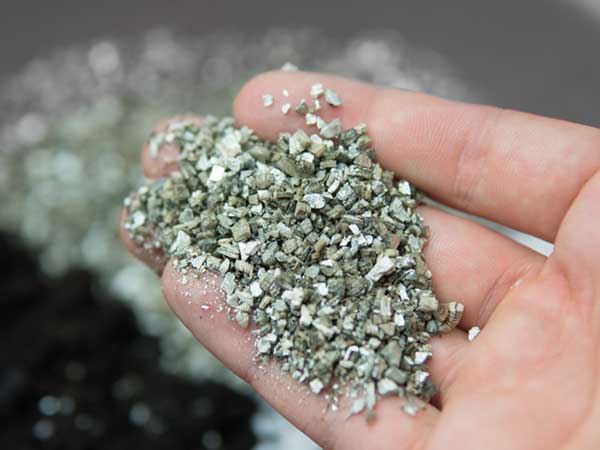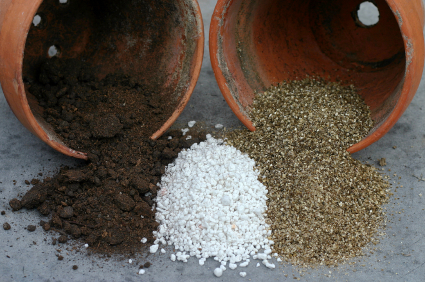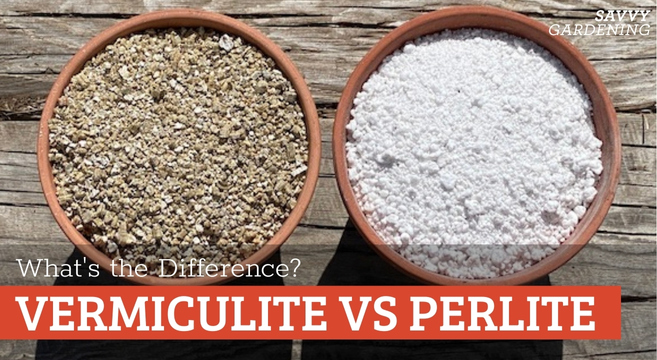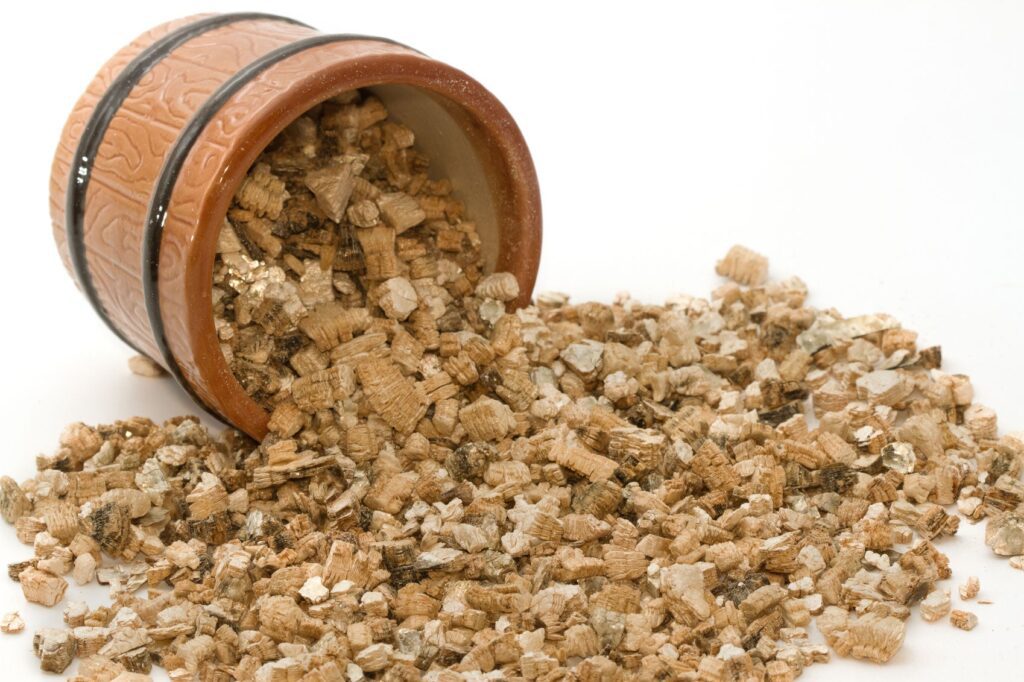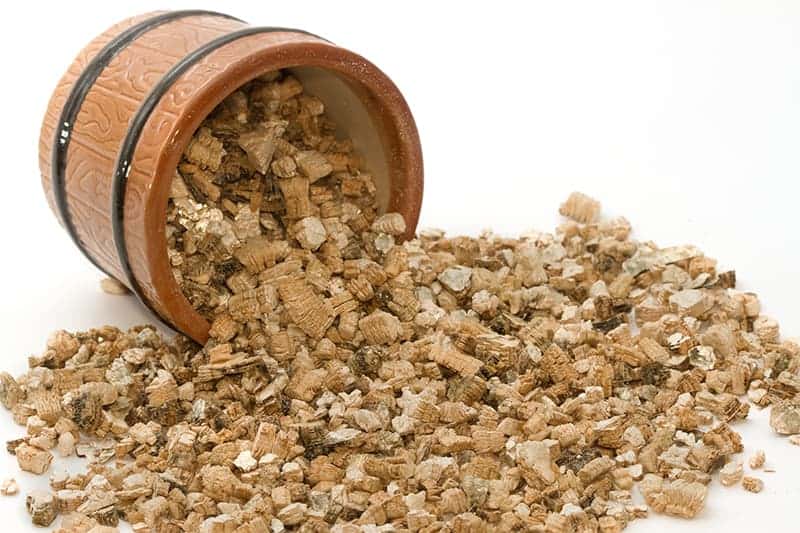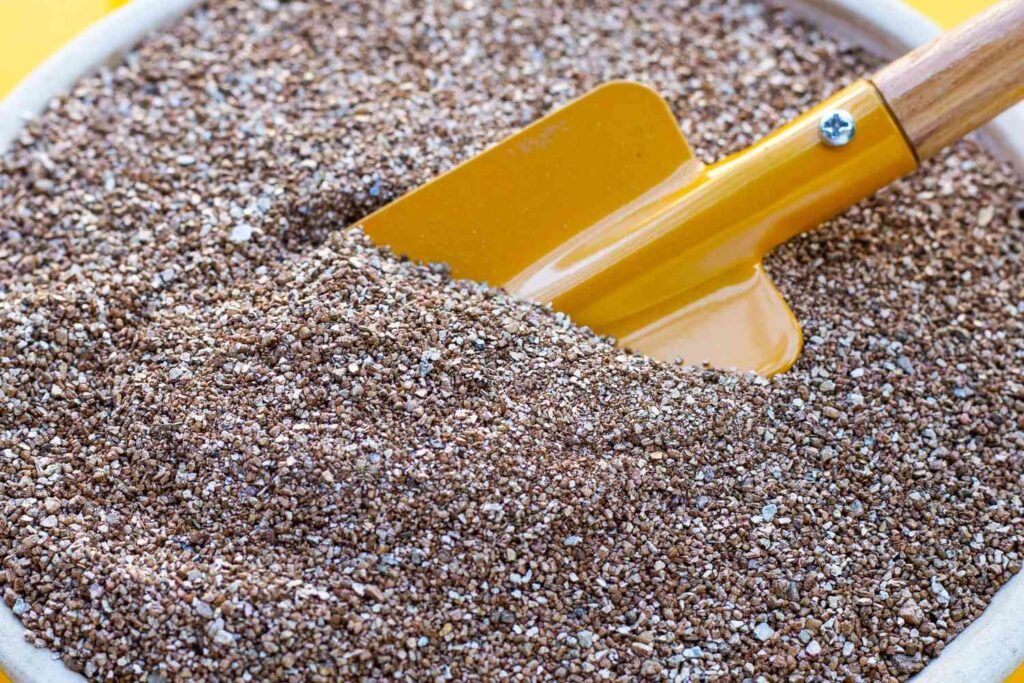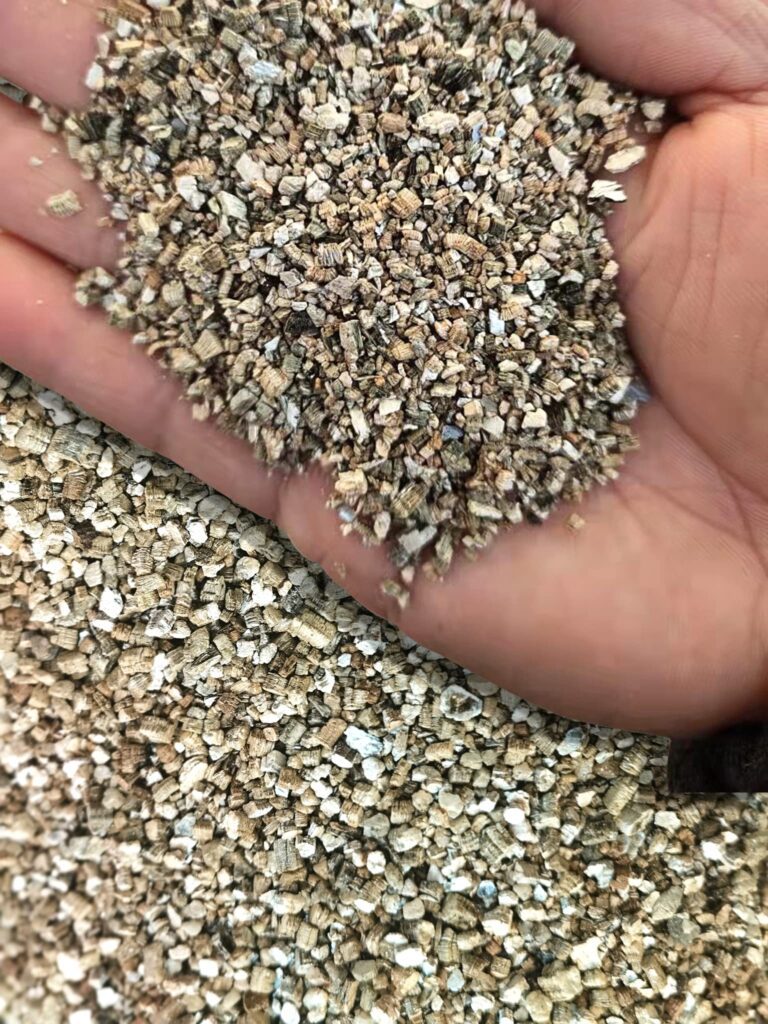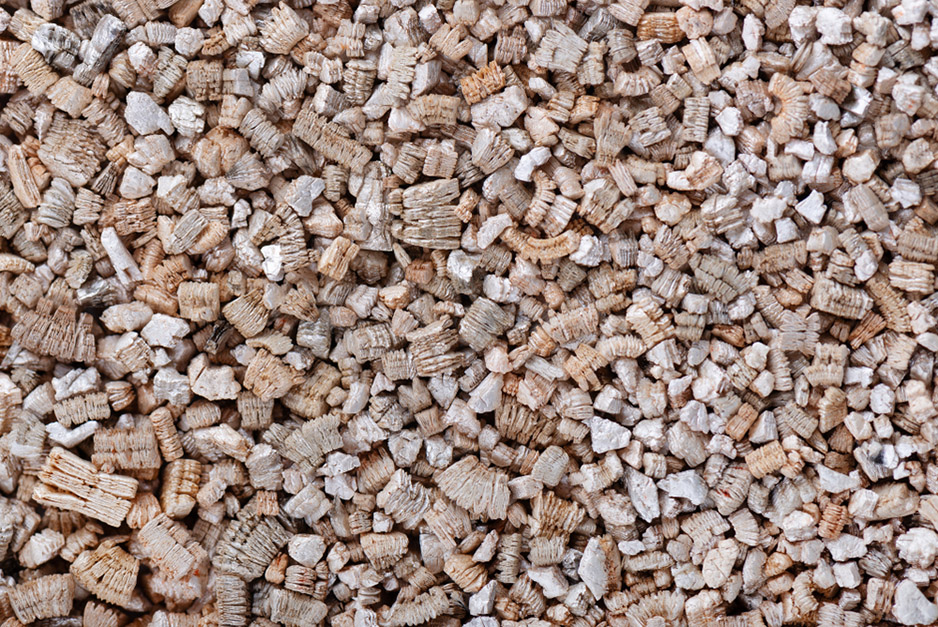Are you wondering whether it’s safe to use vermiculite in your garden? Well, you’re not alone! Many gardeners are curious about the benefits and potential risks of this popular soil amendment. In this article, we’ll explore the topic of vermiculite in gardening and provide you with all the information you need to make an informed decision. So, if you’re eager to learn about the pros and cons of using vermiculite in your garden, you’ve come to the right place!
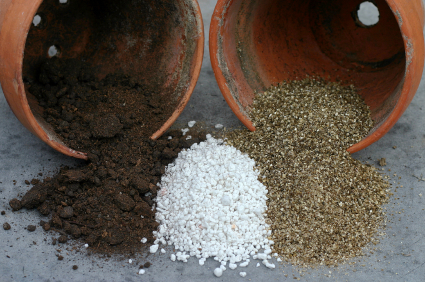

What is Vermiculite?
The Definition of Vermiculite
Vermiculite is a mineral that is often used in gardening and horticulture due to its unique properties. It is a type of clay that is formed through the weathering of certain minerals, such as biotite and phlogopite. When heated, vermiculite expands to form a lightweight and highly absorbent material.
Properties of Vermiculite
Vermiculite has several properties that make it beneficial for use in the garden. Firstly, it has excellent water retention capabilities, allowing it to retain moisture and nutrients in the soil. This helps to prevent over-drying and provides a consistent water supply to the plants.
Additionally, vermiculite has good aeration properties, allowing oxygen to reach the roots of the plants. It also has a high cation exchange capacity, which means it can hold onto and release nutrients as needed by the plants.
Benefits of Vermiculite in the Garden
Improving Soil Aeration and Drainage
One of the main benefits of using vermiculite in the garden is its ability to improve soil aeration and drainage. By adding vermiculite to the soil, it helps create air pockets that allow oxygen to reach the roots more easily. This is particularly beneficial for plants that require good drainage, as it prevents root rot and helps promote healthy root development.
Enhancing Nutrient Retention
Vermiculite is also known for its ability to enhance nutrient retention in the soil. It has a high cation exchange capacity, which means it can attract and hold onto nutrients such as potassium, calcium, and magnesium. This helps prevent leaching of nutrients and ensures that they are available to the plants over an extended period of time.
Promoting Seed Germination and Root Development
Another advantage of using vermiculite in the garden is its ability to promote seed germination and root development. Its lightweight and absorbent nature make it an ideal medium for starting seeds. Vermiculite retains moisture and provides a stable environment for seeds to germinate. It also encourages the development of strong and healthy roots, which are essential for the overall growth and vitality of the plants.
Reducing Soil Erosion and Weed Growth
Vermiculite can act as a natural soil stabilizer, helping to reduce soil erosion. By adding a layer of vermiculite to the soil surface, it helps to prevent the soil from washing away during heavy rainfall or excessive watering. Additionally, the use of vermiculite as a mulching material can help suppress weed growth by blocking sunlight from reaching weed seeds, thus reducing the competition for nutrients and water.
Potential Risks and Controversies
Asbestos Contamination
One of the potential risks associated with vermiculite is asbestos contamination. In the past, some vermiculite products were found to contain asbestos fibers, which could pose a health risk if inhaled. This is particularly true for vermiculite products that were mined from certain sources, such as the Libby mine in Montana, which was known to have asbestos contamination.
Health Concerns
Due to the potential presence of asbestos in vermiculite, there have been concerns about its impact on human health. Asbestos fibers, when inhaled, can cause serious health conditions such as lung cancer and mesothelioma. Therefore, it is important to take precautions when handling and using vermiculite, especially products that are suspected to contain asbestos.
Environmental Impact
Another controversy surrounding the use of vermiculite is its potential environmental impact. The mining and processing of vermiculite can have negative consequences on the environment, such as soil degradation and water pollution. It is important to consider the ecological footprint of vermiculite production and opt for sustainable alternatives whenever possible.
Safe Usage of Vermiculite in Gardens
Testing for Asbestos Contamination
Before using vermiculite in your garden, it is recommended to have it tested for asbestos contamination. There are specialized laboratories that can analyze samples of vermiculite to determine the presence of asbestos fibers. If the results come back positive, it is best to avoid using that particular vermiculite product.
Precautions to Minimize Health Risks
If you decide to use vermiculite in your garden, it is important to take certain precautions to minimize the potential health risks associated with asbestos. Always wear protective gear such as gloves and a mask when handling vermiculite, especially if there is a known or suspected presence of asbestos. Avoid creating dust or fine particles by wetting the vermiculite before handling or mixing it with other materials.
Disposal of Vermiculite Products
If you have vermiculite products that are confirmed to contain asbestos, it is crucial to follow proper disposal protocols. Contact your local hazardous waste facility or environmental agency to inquire about the correct procedures for disposing of asbestos-containing materials. It is important to handle and dispose of asbestos-containing vermiculite with extreme caution, as improper handling can lead to the release of asbestos fibers into the environment.
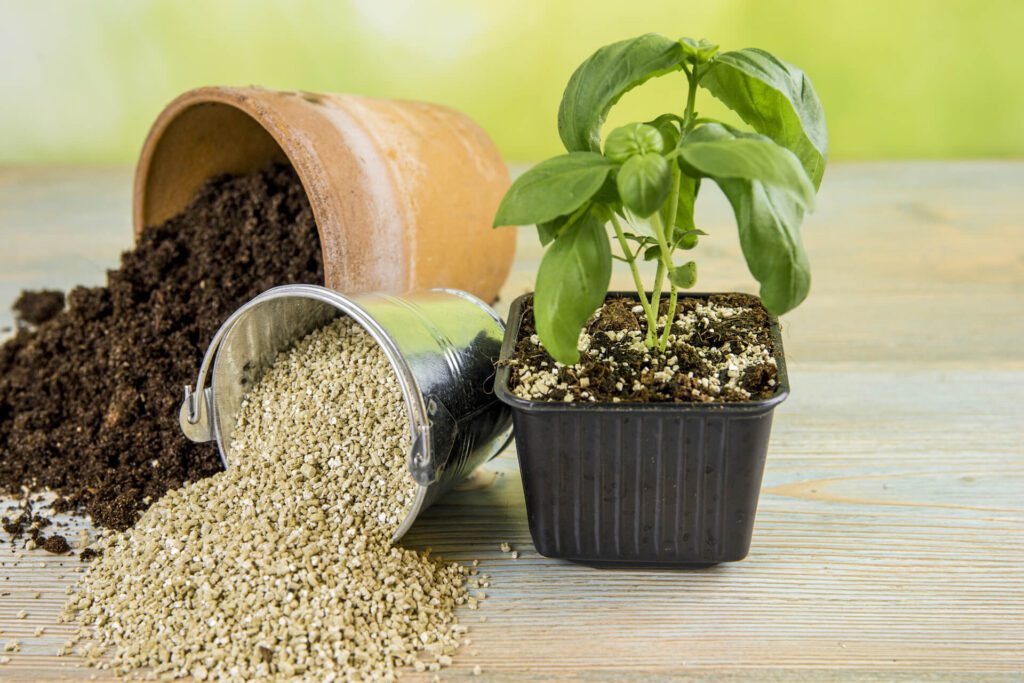

Popular Uses of Vermiculite in Gardening
Seed Starting Mixes
Vermiculite is commonly used in seed starting mixes to provide a lightweight and moisture-retaining medium for seed germination. It helps create an optimal environment for seedlings to develop strong roots and healthy growth.
Potting Mixes
In potting mixes, vermiculite can improve the moisture-holding capacity and aeration of the soil, ensuring that potted plants receive adequate water and oxygen for optimal growth. It also helps prevent compaction of the soil, allowing roots to penetrate more easily.
Soil Amendments
Vermiculite can be used as a soil amendment to improve soil structure, moisture retention, and nutrient availability. By incorporating vermiculite into the soil, it can enhance its overall fertility and productivity.
Mulching and Insulation
Vermiculite can also be used as a mulching material to suppress weed growth and retain soil moisture. It acts as a protective layer on the soil surface, reducing water evaporation and helping to insulate plant roots from extreme temperature fluctuations.
Alternative Soil Amendments and Substitutes
Perlite
Perlite is a popular alternative to vermiculite, especially in terms of its ability to improve soil aeration and drainage. It is made from volcanic glass that has been heated and expanded. Perlite is lightweight, sterile, and helps prevent compaction of the soil, making it an excellent choice for improving the structure of garden soils.
Peat Moss
Peat moss is another commonly used soil amendment that helps retain moisture and improve the water-holding capacity of the soil. It is a renewable resource that is widely available and can help improve soil structure and nutrient retention.
Coconut Coir
Coconut coir is a sustainable and environmentally friendly alternative to vermiculite. It is made from the fibers of coconut husks and is known for its excellent water retention properties. Coconut coir helps prevent soil compaction and provides a suitable medium for plant growth.
Compost
Compost is an organic soil amendment that can improve the overall health and fertility of the soil. It helps enrich the soil with nutrients, improve soil structure, and enhance the moisture-holding capacity. Adding compost to the garden can promote the growth of beneficial microbes and support a thriving ecosystem.
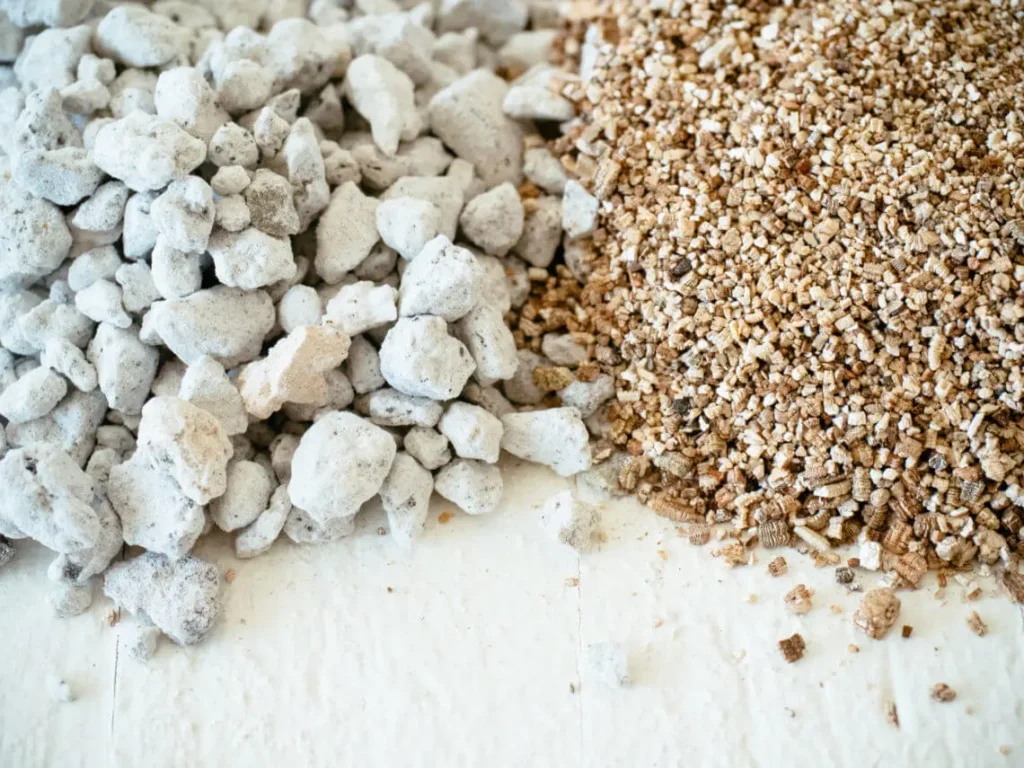

How to Incorporate Vermiculite in the Garden
Preparing the Soil
Before incorporating vermiculite into the garden, it is important to prepare the soil properly. Remove any weeds or debris from the area and loosen the soil using a garden fork or tiller. This will create a suitable environment for the vermiculite to mix with the soil.
Mixing Vermiculite with Other Amendments
To ensure proper distribution, mix the vermiculite with other soil amendments such as compost or peat moss. This will help improve the overall soil structure and enhance the nutrient-holding capacity. Use a garden rake or shovel to thoroughly incorporate the vermiculite into the soil.
Application Techniques
The application of vermiculite in the garden can vary depending on the specific needs of the plants. For seed starting or potting mixes, incorporate vermiculite directly into the growing medium. For soil amendments or mulching, spread a layer of vermiculite evenly over the soil surface, taking care not to disturb the roots of existing plants.
Vermiculite in Organic Gardening
Certified Organic Vermiculture
For those practicing organic gardening, it is essential to look for vermiculite products that are certified organic. These products are produced following strict organic standards, ensuring that they are free from synthetic chemicals and additives.
Organic Vermiculite Brands
There are several organic vermiculite brands available on the market that offer organic-certified products. Look for brands that have been tested for asbestos contamination and meet organic certification requirements. It is important to read product labels and choose brands that align with your organic gardening principles.
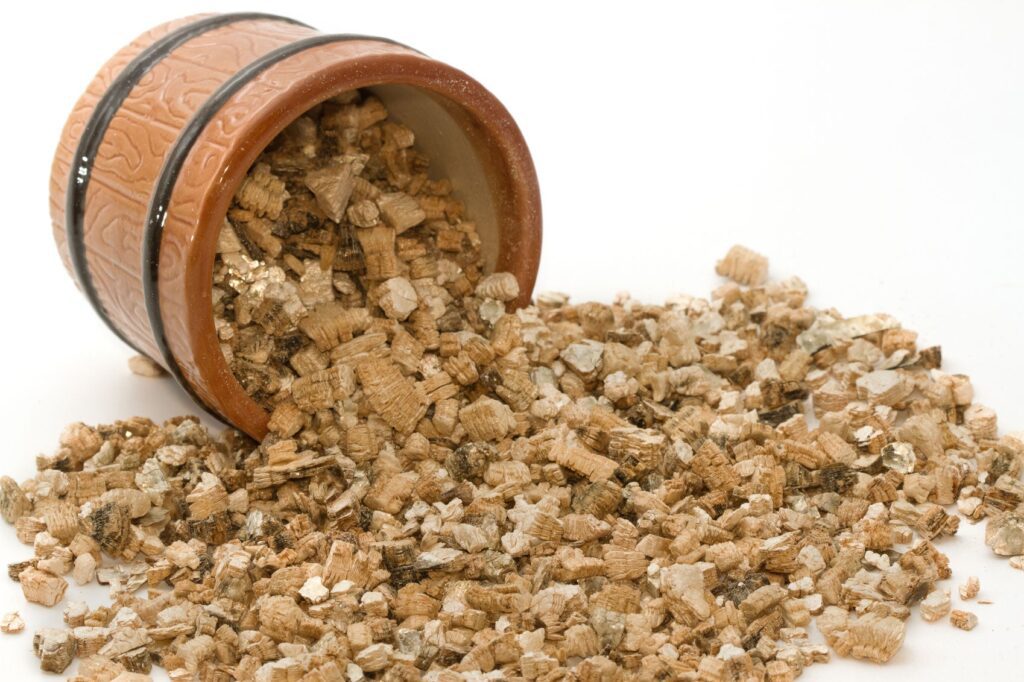

Vermiculite as a Medium for Container Gardening
Benefits for Container Plants
Vermiculite is a particularly useful medium for container gardening. Its lightweight nature reduces the overall weight of the container, making it easier to move around. The excellent water retention capabilities of vermiculite ensure that container plants receive a consistent water supply, even during hot summer months.
Choosing the Right Vermiculite Grade
When using vermiculite for container gardening, it is important to choose the right grade. Coarse-grade vermiculite is suitable for larger containers or plants that prefer well-draining soil, while medium or fine-grade vermiculite is better suited for smaller containers or plants that require more moisture retention.
Conclusion
In conclusion, vermiculite can be a valuable addition to any garden, providing numerous benefits such as improved soil aeration, enhanced nutrient retention, and promotion of seed germination and root development. However, it is essential to be aware of the potential risks and controversies associated with vermiculite, particularly regarding asbestos contamination and environmental impact. By taking proper precautions and following safe usage practices, vermiculite can be safely incorporated into your garden to enhance its productivity and overall health.
